Can Cats Eat Avocado? Here's What Experts Say
29.04.2022.
Avocados, also called "alligator pears" because of their green, rough skin, are a potent human superfood. If you're anything like us, you love some avocado on your toast. Many avocado-loving cat owners wonder, "Can cats safely eat avocados?" As we'll examine in this article, the answer to that question is not as easy as you may think. Avocado may not be an onion, but there are still some layers to the correct answer regarding its safety for cats. Parts of it are safe, and other parts are not so much. Here's what you should know about cats and avocados.
Can cats safely eat avocado?
Cats may not only safely eat avocado; there are even some health advantages for them. Here are some benefits of avocado flesh for cats:
It's a protein powerhouse
Avocado has 18 amino acids, making it a great source of protein for cats. However, cats are obligatory carnivores, which means animal protein is essential for most of their body functions. Nevertheless, the benefits avocados can offer our cats include muscle and nail growth, and energy production.
RELATED: Can Cats Eat Rice? Is It Good For Diarrhea?
Contains healthful fats
Avocados include "good fats," such as omega fatty acids and oleic acid. Omega fatty acids have potent anti-inflammatory properties. No matter how careful you are, feeding them is still best done in modest portions.
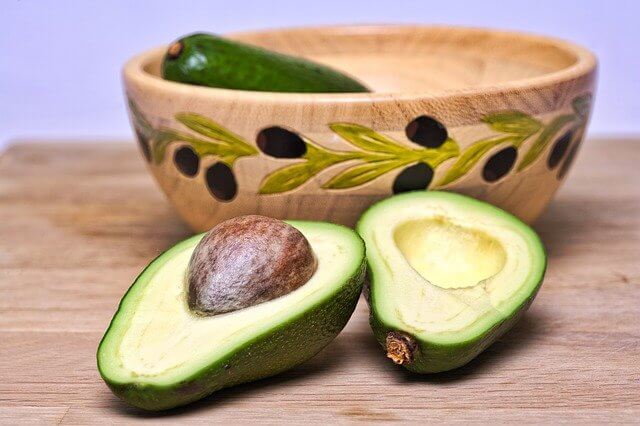
Packed with antioxidants
Free radicals are the primary cause of the development of cancerous cells, and antioxidants counteract that damage. Avocado's anti-inflammatory characteristics may also assist in lessening the harmful effects of cancer therapies like chemotherapy by inhibiting the growth of malignant cells. Additionally, zeaxanthin and carotenoids lutein are antioxidants beneficial for the cat's eyes.
Packed with dietary fiber
Avocados contain loads of fiber, enhancing the balance between the beneficial and harmful bacteria found in your cat's colon. Fiber is excellent for promoting regular bowel movements. Most cat and dog owners know that adding dietary fiber to their pet's diet can resolve issues like diarrhea and constipation. It is often included in overweight cats' diets because it makes cats feel full longer. Plus, dietary fiber can lower surges in blood sugar levels, which means it supports heart health.
RELATED: What Human Foods Can Cats Eat? List of 24 Safe Human Foods
Cardiovascular health
In addition to promoting heart health, the potassium content found in avocados helps lower blood pressure, which is a crucial cardiovascular function. Unfortunately, cardiovascular problems are very common among American cats. These issues are often the result of a lazy, inactive lifestyle.
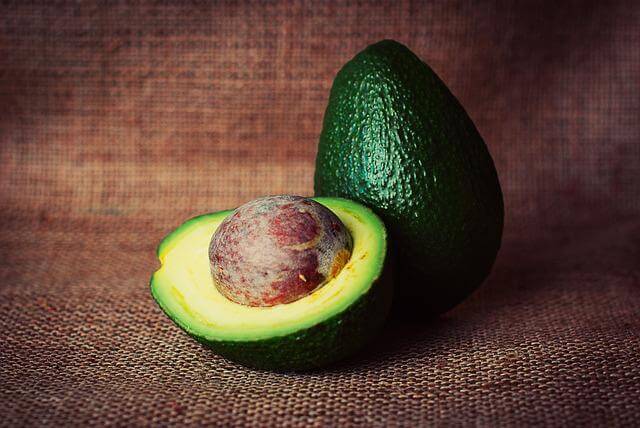
As an excellent vitamin and mineral source, avocado meat makes a healthy treat for felines. We didn't mention them in detail, but avocado also includes loads of vitamin A, C, E, and K; various B vitamins, folate, phosphorus, iron, copper, zinc, magnesium, and manganese.
When should cats avoid avocados?
Other parts of this fruit, such as the leaves or the pit, can be poisonous to cats if consumed.
Concern has been raised about the organic chemical persin, which can be found in the fruit's leaves, pit, skin, and stem. The good news is that persin isn't that dangerous for canines and felines, but it can be pretty dangerous to livestock and birds. The second good news is that cats aren't at risk of death from this impact. Still, the toxin is powerful enough to cause diarrhea, vomiting, gastrointestinal pains, and pancreatitis in some animals.
RELATED: Can Cats Eat Apples? Here's How To Safely Feed Apples To Your Cat
Not only are avocado pit, skin, stem, and leaves potentially toxic, but they can also cause choking in cats. Like many carnivores in the wild, cats tend to swallow large parts of their prey whole. It is crucial to clean up after you prepare an avocado. All the avocado discards should be thrown away somewhere the cat cannot reach.
If your cat overeats on avocado, the most likely result will be diarrhea and other bowel issues. Avocados' high-fat content will cause GI issues in cats. In worst cases, cats may potentially develop pancreatitis. You should be extra cautious when giving avocado to senior felines or cats with digestive health conditions because their stomachs may be more sensitive.
When your cat has a history of GI issues, like pancreatitis or gastritis, you should avoid giving avocado to them. Because of the fruit's natural high-fat content, your cat's preexisting illnesses may start acting up.
RELATED: Can Cats Eat Grapes? Here's Why It's Not a Good Idea
Can cats consume avocado oil?
Again, the answer is yes, but only if the oil is given in tiny amounts. Avocado oil provides nearly all the same health advantages as eating fresh avocado meat. Plus, the oil is absorbed quicker into your pet's system. Another significant advantage is that oil made from avocado includes lower persin quantities. However, it still contains loads of fat. Therefore, your cat can only consume moderate amounts.
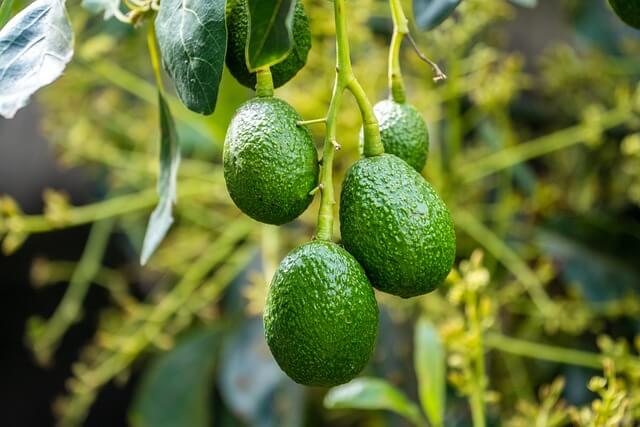
Consult your cat's veterinarian before administering this medication. They may suggest applying avocado oil topically to your pet's skin and coat to help them look and feel better. The most important thing is to ensure the oil doesn't contain other unhealthy ingredients.
What about guacamole?
Onion and garlic, two common ingredients in guacamole, are poisonous to cats and should be avoided. Guacamole is often made with tomatoes and lemon juice. These two ingredients can damage the cats' stomachs and hearts.
Can I give avocado to kittens?
Things that are safe for adult cats aren't necessarily safe for kittens. Their immune systems aren't as developed, and their sensitive stomachs might have a bad reaction to it. It is absolutely crucial to correctly dispose of the toxic avocado parts, like leaves, stems, seeds, and peels. Tiny kittens could be seriously harmed by the poisons they contain. Plus, their throats are smaller, which means the choking hazard is more significant.
RELATED: Can Cats Eat Bananas? What Would Your Vet Say?
How to safely include avocado into a cat's diet?
Here are some feeding suggestions if you're absolutely adamant about giving avocado to your cat:
Make sure to carefully peel the avocado. Remove the pit and stem, and cut it into manageable small pieces. Then, you may give some to your cat straight or "spice" their typical meal with tiny avocado pieces.
Cats should only be fed tiny amounts of avocado, just like humans. Depending on your cat's weight, about one tablespoon of cut avocado should be more than enough for them. It's best to talk to your vet and ask them for advice on the safe amounts your cat can eat.
If your cat spends a significant amount of time outside and you have avocado trees, ensure the cat cannot simply reach the tree. The avocado plant can be severely toxic to pets because of the greater concentration of the poison persin in the tree's bark and leaves.
RELATED: Can Cats Eat Watermelon?
What to do in case of avocado toxicity?
If you notice anything weird after your cat consumes avocado, you should call your vet. If you can't reach your vet, call the Pet Poison Helpline (855)764-7661. Cats with avocado poisoning show the following symptoms:
- Diarrhea
- Coughing
- Swelling
- Swallowing difficulties
- Vomiting
- Breathing issues
- Fever
- Increased blood pressure
- Stomach pains
Your usual vet or the staff will advise you on the best way to help your unfortunate cat.
World Cat Finder Team



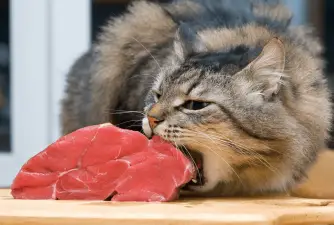
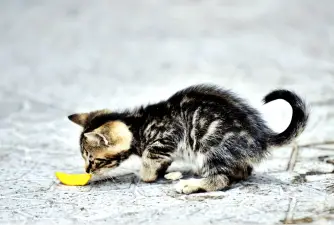
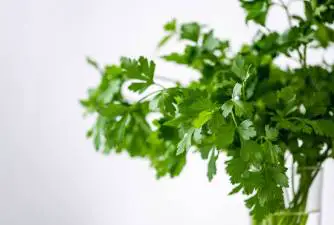

Share